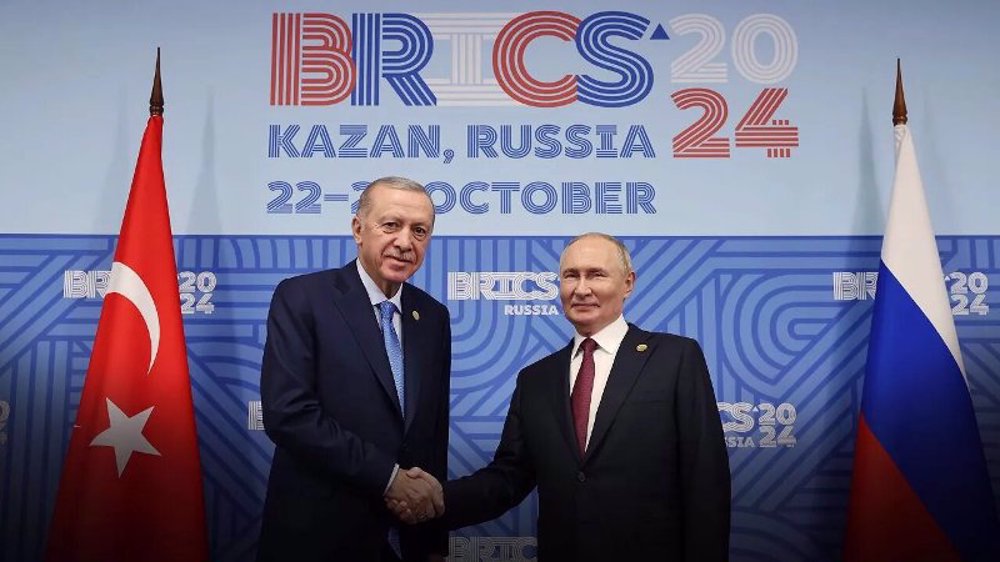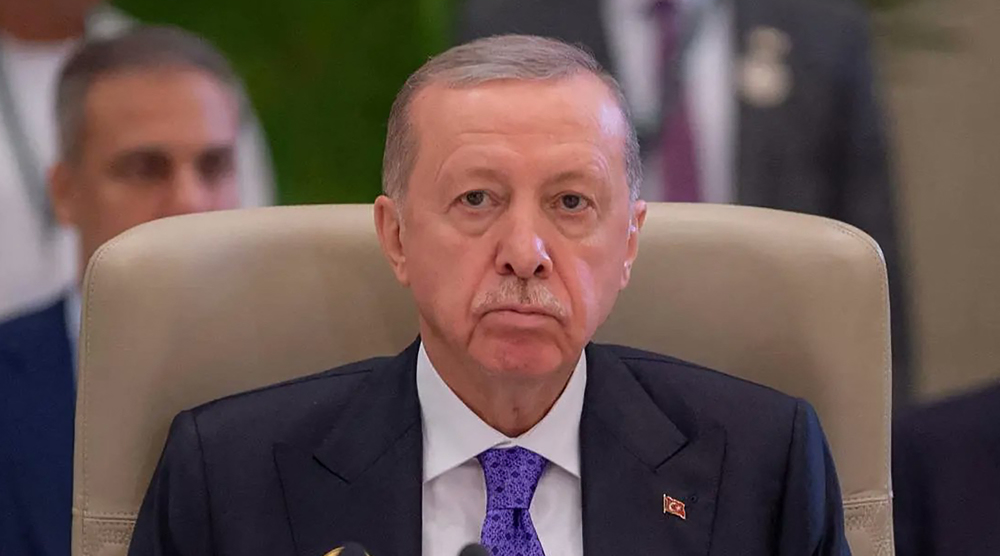Turkey's Erdogan warns of more sanctions against ‘rotten’ Netherlands
Turkish President Recep Tayyip Erdogan has warned that there is still more room for imposing further sanctions on the Netherlands, amid an unprecedented deepening row between the two NATO allies that erupted after a ban on Turkish ministers prevented them from speaking at political events in Rotterdam.
The Turkish leader made the strong-worded remarks in a speech in the capital, Ankara, on Tuesday, after the government slapped an array of political sanctions against Amsterdam a day earlier.
The bans include halting political dialogue between the two countries, barring the Dutch ambassador from returning to the Anatolian country and closing Turkish airspace to all Dutch diplomats.
Erdogan’s warning came three days after Dutch authorities banned Turkish Foreign Minister Mevlut Cavusoglu and the country’s Family and Social Policy Minister Fatma Betul Sayan Kaya from campaigning for Turkey’s April 16 constitutional referendum, which seeks to extend Erdogan's power.
The ban infuriated Ankara and triggered a mounting tension between the two sides, with Erdogan calling the Dutch authorities “fascists” and “remnants of Nazis” over the weekend. He reiterated his previous provocative assertions, which sparked outrage in a country that had gone through Nazi Germany’s bombardment and occupation in World War II. Dutch Prime Minister Mark Rutte urged Ankara to apologize for comparing the Dutch to Nazis.
Erdogan also lambasted the Netherlands for its alleged failure in stopping the massacre of some 8,000 Muslim men and boys in Srebrenica, eastern Bosnia, back in 1995, when a Dutch battalion of the United Nations peacekeepers was responsible for protecting the victims against the Bosnian Serb forces.
“We know the Netherlands and the Dutch from the Srebrenica massacre. We know how rotten their character is from their massacre of 8,000 Bosnians there,” Erdogan said on Tuesday.
Shortly after the Turkish leader’s controversial comments, Rutte slammed Erdogan’s claims, calling them “a repugnant historical falsehood.” He also blamed Erdogan for continuing “to escalate the situation.”

Elsewhere in his remarks, Erdogan said “our nation” would choose “on April 16 at the ballot box” the “Yes” vote as “the best answer” to the country’s enemies.
The vote is aimed at abolishing the office of the prime minister and giving more executive powers to the currently largely ceremonial position of the Turkish president, including issuing decrees, declaring emergency rule, appointing ministers and state officials and dissolving the parliament.
On March 10, the Venice Commission, a panel of legal experts at the Council of Europe, called the changes a “dangerous step backwards” for democracy, and three days later the European Commission said it would evaluate Turkey’s planned constitutional changes in light of the country's status as an applicant for EU membership, which Ankara has been seeking for a long time.
Several German municipalities had earlier canceled similar rallies by a number of Turkish ministers campaigning for a yes vote in the April plebiscite. The move angered Ankara, prompting Erdogan on March 13 to call German Chancellor Angela Merkel a “terrorist supporter” for Berlin’s failure in responding to 4,500 dossiers sent by Ankara on terror suspects, including those linked to Kurdish militants and last year’s failed coup in Turkey.

Merkel had earlier pledged her “full support and solidarity” to the Dutch, saying Erdogan’s allegations were “completely unacceptable.”
Germany has also hit back at Ankara, saying the country was playing the role of the victim in a bid to foster solidarity among all Turks for the upcoming referendum.
“The statements from Turkey are ... absurd, have no real foundation, and have the sole aim of putting Turkey in a victim's role in order to build solidarity” among voters, said Germany's Interior Minister Thomas de Maiziere on Tuesday, a day after Erdogan made the accusation against Merkel.
The developments came also a day after the European Union and NATO strongly urged Turkey to de-escalate the growing tension, but of no avail since the Turkish Foreign Ministry described the EU warning as “worthless” and “biased” toward the Netherlands.
Besides Germany and the Netherlands, the governments of Austria, Denmark and Switzerland have also prevented Turkish officials from campaigning in their countries, all of which have large Turkish immigrant communities.
Pezeshkian to US, Europeans: You are killing women, children
VIDEO | COP29: another climate failure?
ICC issues arrest warrants for Netanyahu, Gallant for war crimes
Israeli strikes kill 88 Palestinians in northern Gaza
American voters plainly rejected complicity in Gaza genocide: Iran FM spox
ICC should issue more arrest warrants for Israeli authorities over Gaza genocide: UN expert
Israel using AI weapons co-produced by India in Gaza genocide: Report
Israel issues new evacuation orders, shortly launches strikes on southern Lebanon














 This makes it easy to access the Press TV website
This makes it easy to access the Press TV website